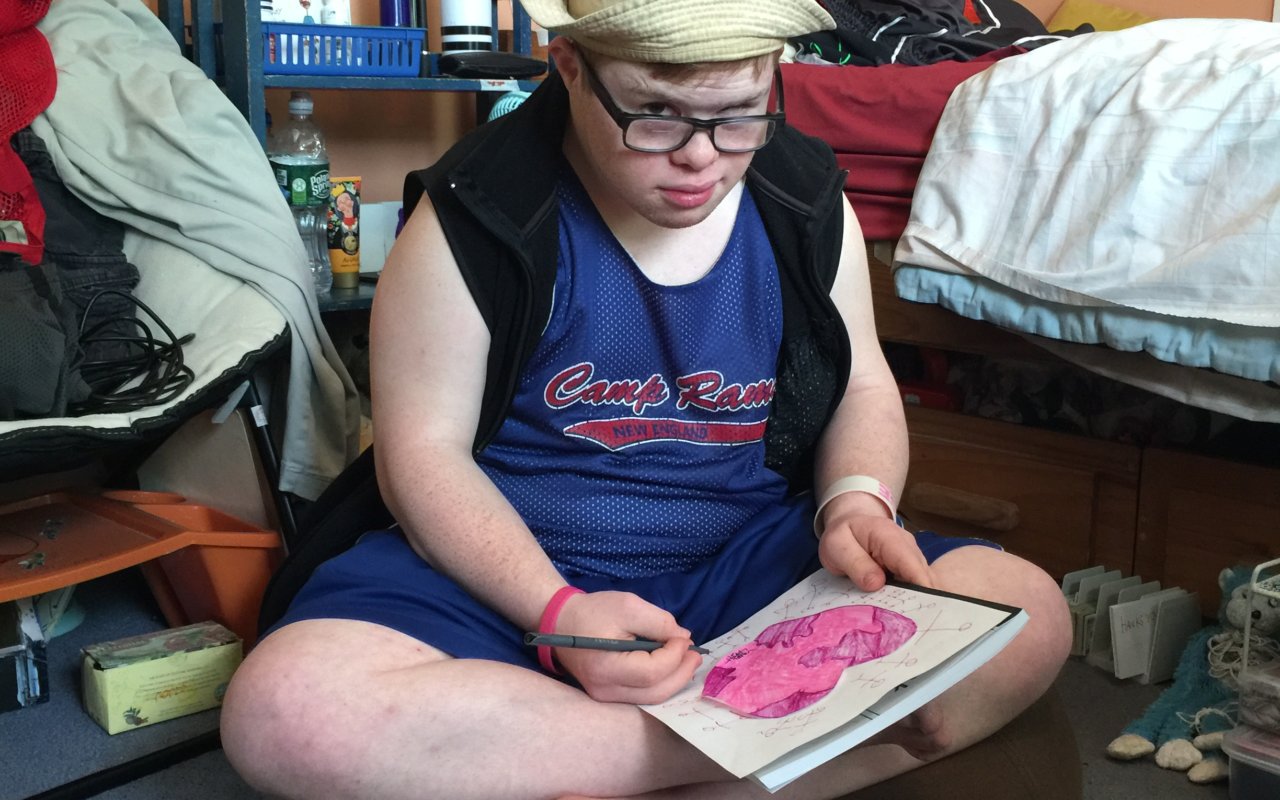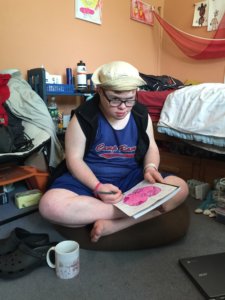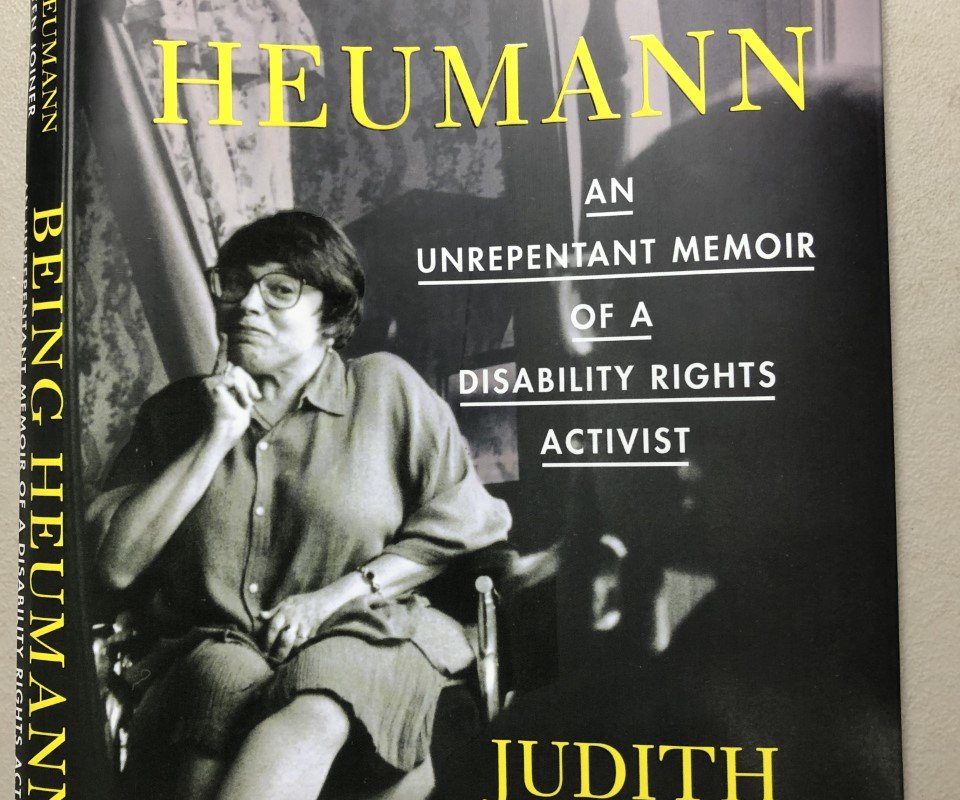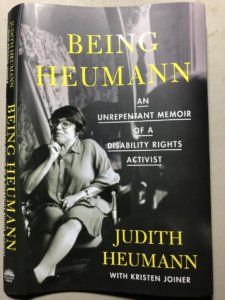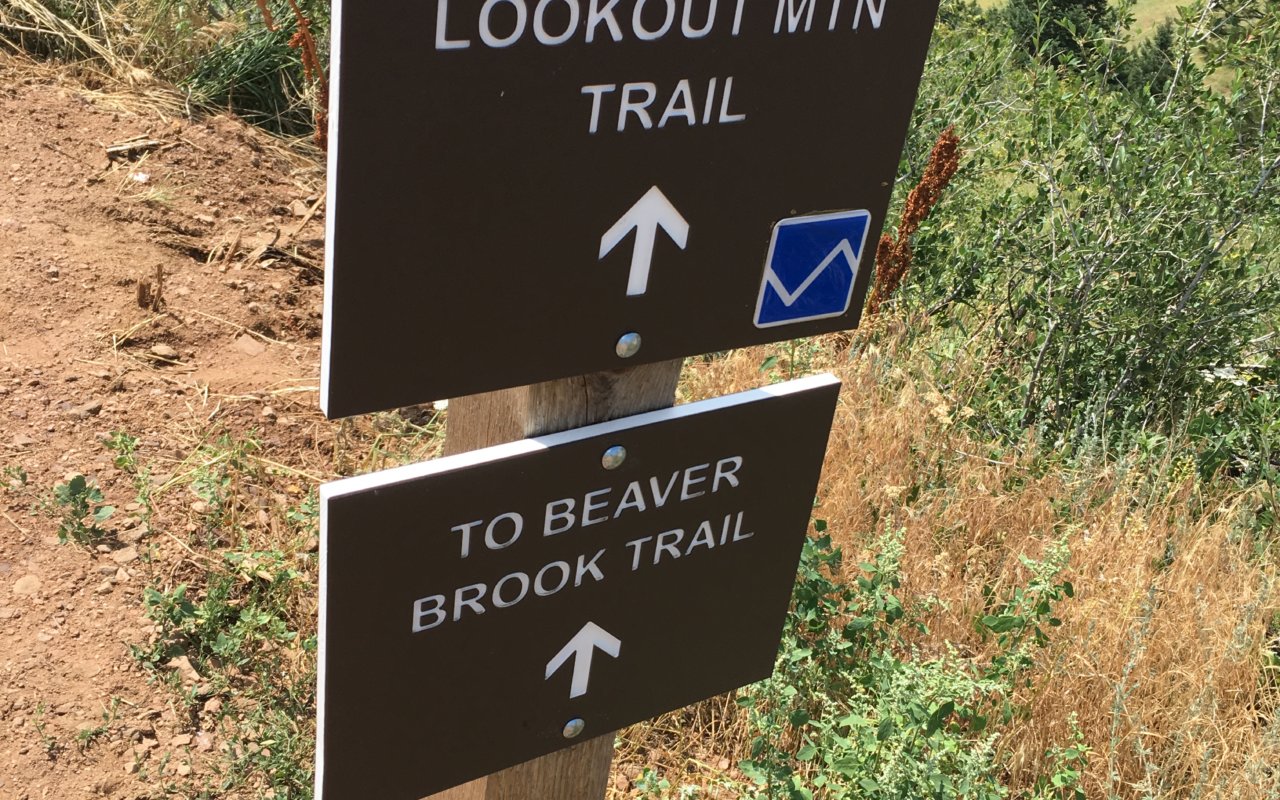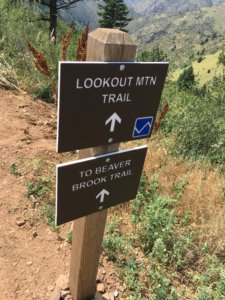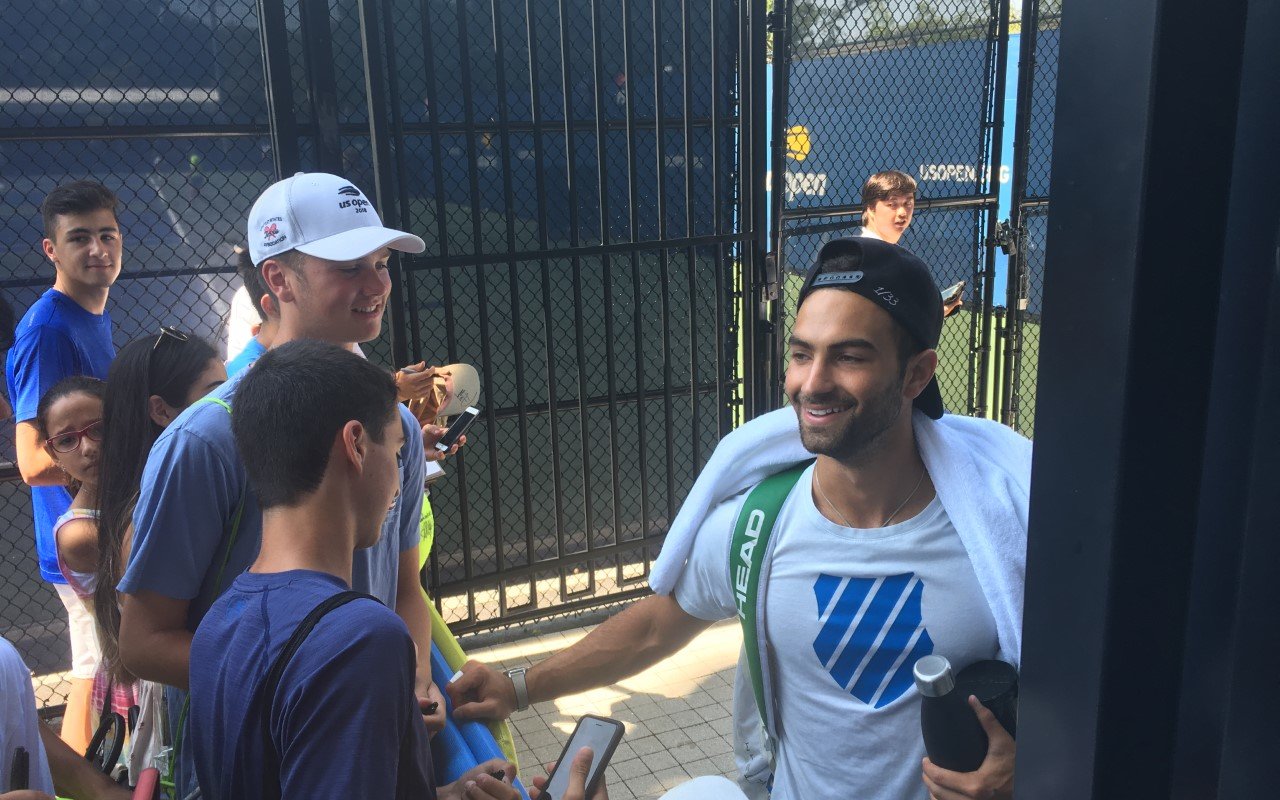Uriel Levitt was devastated. Late last week, he received the news there will be no camp this summer. Uriel, 24, a Silver Spring, Maryland resident is a longtime participant in the Tikvah camping and vocational education program at Camp Ramah in New England. The Ramah camping movement has been including people with disabilities in its camps since 1970.
Uriel participates in weekly year round activities like the “Shabbos is Calling” video chat with counselors and friends, and he has participated in many virtual programs set up by Ramah New England and the National Ramah Commission in recent weeks to keep campers engaged during the Covid-19 pandemic.
Uriel’s parents, Matt and Dina, wrote in an email of appreciation to camp director, Rabbi Ed Gelb, and Tikvah Director, Dr. Bonnie Schwartz, that Uriel showers and dresses early for Shabbat so he can join the Ramah New England community in their pre-Shabbat Kabbalat Shabbat programming, and he “pushes” the family to quickly finish their family havadalah on Saturday nights so he can join Ramah Havdalah.
Uriels’ parents know how what a summer of no camp will be like for Uriel. “This is very hard news. Uriel will be really upset, but that reflects the beautiful truth that Camp Ramah in New England is so beloved. We’ll just have to find ways to inject “Ramah-ness” into Uriel’s summer experience, in whatever ways we can.”
Uriel is artistic. He and his parents quickly came up with an idea. “Uriel and we decided that this would be an amazing opportunity to give back to Ramah and the three other organizations that have been providing him with activities and a sense of community during this difficult and isolating time.” Uriel sat in his room and designed an inspiring t-shirt and will be donating 50% of the profits from the sales to these four organizations.
On the first evening after the order form went “live,” Uriel received orders for more than 20 t-shirts– half chose Camp Ramah New England as the place they would like their donation to go. The Levitt’s add, “We know it will be a small dent in Ramah’s “Need Bucket” but it will be delivered with infinite love and gratitude for everything that Ramah has given to Uriel and by extension the Levitts over the years.” Please support Uriel’s efforts, and his kind support of organizations making a difference. Order t-shirts here: https://tinyurl.com/EarthStrongTshirtForm
It will surely be a tough summer without camp—for Uriel and for thousands of campers and their families. Thank you to Uriel and the Levitts for offering one way to find opportunity in an otherwise tough situation. Everyone appreciates your love of Ramah and Tikvah! We look forward to seeing you back in person next summer.
